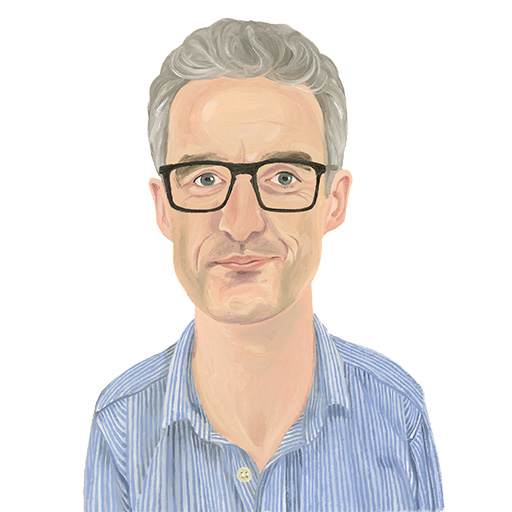France appears to be embracing the deadly Zulu “Horns of the Buffalo” tactic when it comes to the lifespans of its citizens.
On March 4, the French Parliament decided overwhelmingly to enshrine abortion as a constitutional right, thereby becoming the only country in the world to use its most fundamental principles of national law to guarantee the right to terminate a pregnancy into the second trimester.
This was shortly followed by news that Emmanuel Macron is very much committed to bringing in a new law permitting “assisted dying” (a euphemism that attempts to gloss over the fact it is assisted suicide).
Perhaps it’s just me but given the above, the once rousing cry of Vive La France! is starting to ring a bit hollow – at least the life-enhancing element. Following the French constitutional vote, the Eiffel Tower was lit up with the words Mon corps mon choix (“My body my choice”). Vive la choix! then?
This dual-pronged push for abortion to nix life at its earliest manifestation and for euthanasia to take care of things at the other end brings to mind the famous scene in the film Zulu, where the Boer advisor, Adendorff, tells the plummy British Army officers at Rorke’s Drift about how the advancing Zulu army will destroy them.
Using a bayonet to draw a diagram in the dirt, Adendorff says: “The classical attack of the Zulus is in the shape of a fighting bull buffalo: the head, the horns and the loins.
“First the head moves forward and the enemy naturally moves in to meet it – but it’s only a feint. The warriors in the head then disperse to form the encircling horns, and the enemy is drawn in on the loins, and the horns close in on the back and sides.”
Stabbing the bayonet into the ground, he concludes: “Finish.”
Similarly, the French government – along with other Western parliaments such as the UK’s, which is also pushing to liberalise abortion further and bring in assisted dying/suicide legislation – seem hellbent on being able to control and cutoff life at both ends of the spectrum for its populace.
Some might argue it’s massive State overreach (again, is it just me, or is it a coincidence this is all happening after Covid and lockdowns when, to be fair, we all did a pretty good job of letting governments know just how far they could actually go with enacting outlandish and inhumane policies). Others might say there is something deeply sinister going on when the State sets its sights so keenly on the most vulnerable and weak in society (the youngest; the most infirm, which invariably includes the oldest).
The move against le plus petit Français at a constitutional level was also striking because “nobody could seriously think that legal abortion was under threat in France”, notes Nathan Pinkoski in his article “Abortion and the American Colonization of France” for First Things.
Two years ago, the legal limit for abortion on demand in France was extended from twelve to fourteen weeks (thereby becoming more permissive, not being constrained). On top of that, in France those trusted guardians that are the media – including conservative media – “enforce pro-abortion unanimity” and a one-way narrative. Meanwhile, the most that conservative politicians will do is “speak only of their personal opposition to abortion”. In short, the pro-life stance in France has no political power, and was not about to establish The Handmaid’s Tale (hence Michel Houellebecq wrote Submission, which is much more likely).
What is happening in France, says Pinkoski, an assistant professor of humanities at the Hamilton Center for Classical and Civic Education at the University of Florida, is the country “is entirely imitating American politics”, alongside a “trend of copying American progressivism [that] has been going on for years”.
It was the overturning of Roe v. Wade with the Dobbs decision by the US Supreme Court in 2022 that galvanised the French Establishment to push for its constitutional embrace of abortion. It also means, Pinkoski notes, that in the upcoming European Parliament elections, Macron’s team plans to copy the electoral strategy of the US Democratic Party and “round up the youth vote by campaigning on abortion”.
As a result, Pinkoski cautions, what he describes as “the limping remains of the French and European Right”, who have, he grants, been willing to at least try and oppose the mass importation of migrants, would “do just as well to speak out against the mass importation of American progressivism, which is embraced from Europe’s lowliest school children to its most powerful politicians”.
The upshot, he explains, is that not only do European elites “turn a blind eye to the disruption and violence caused by mass migration, legitimising it with the language or American multiculturism”, but the “very identity” of these leaders has “changed”. Deracinated from their national traditions, “their sense of self is defined by reference to the most powerful forces in the world—the progressive elites who run the United States”.
Indeed, one only has to dive into a smattering of Brussels Signals coverage to see Pinkoski’s point play out in the European Commission and among other EU institutions.
“The agendas that preoccupy French elites are set neither in Paris nor in Brussels, but in Martha’s vineyard,” Pinkoski says.
We have been warned about all of this before; some might say going back to Moses and the Ten Commandments. More recently, in Anthony Burgess’s 1963 satirical novel The Wanting Seed, abortion, the championing of homosexuality and disdain for the family have become mainstream and are politically encouraged. Bringing up children is subject to legal sanction, marriage is frowned upon and gender is very much in flux.
The societal ideal in the world that Burgess depicts is “copulation without population”, with overpopulation seen as the most significant threat. This results in social utilitarianism run amok, including a less than reverential approach to death (dead bodies, for example, are recycled for energy; I seriously won’t be surprised if that comes in during our lifetimes; if we are allowed to see them out fully).
While it can increasingly feel like one is living in an Anthony Burgess satirical novel, one usually takes solace from the fact that there is evidence of pushback finally, while one grimly hangs on to the ideal of the checks and balances of the democratic system tempering the zaniness before it gets too out of control.
But once the system of those checks and balances starts being undermined by an absolutist ideological mantra taking hold – as is happening in France (Mon corps mon choix!) – the Burgess Effect starts to feel a lot more real, unsettling and far from magnifique.
Looking back across the Atlantic to, as Pinkoski argues, the source of many of these problems, after President Biden’s inaugural address early in 2021, the Catholic Herald noted in a hopeful editorial called “Healing the divide” that in his speech Biden had quoted St Augustine and the saint’s writings about how “the people was a multitude defined by the common objects of their love”.
Increasingly, though, it appears Western countries on both sides of the Atlantic are set on spending inordinate amounts of energy in restricting who qualifies for that love – and thereby in turn decreeing who can legally be done away with.
James Jeffrey is acting online editor for the Catholic Herald.






How Macron lost Morocco, France’s best ally in Africa